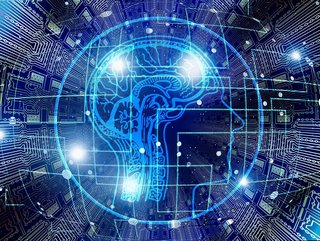How can AI evolution be advantageous to our daily lives?

Surely not another article about AI and its latest iteration, Generative AI! Despite the subject being already omnipresent in UK media, I wanted to make some observations as I believe it is set to have a considerable impact on our personal and professional lives.
There’s no doubt that 2023 will be the year that advances in AI will reshape manufacturing, retail, finance, marketing, media and many other well established industries. I think AI will continue to intrigue and even trouble organisations and consumers who don't – as yet - know what to make of it. However, innovation driven by the advances in technology and specific applications to a wide range of industries, has become an irreversible trend, most often with favourable outcomes. It’s my belief that we should be open-minded about generative AI too, because what’s coming in the months and years ahead, could potentially bring progress to society as a whole.
Generative AI becomes creative…
What I find fascinating about generative AI, is that instead of analysing existing data, it creates new and original content from machine learning algorithms trained on previous work. Developers have already used it to generate images or text, to program code, paint and illustrate and even create video and sound. Of course, it’s not yet perfect, and it often delivers mixed results. Over the next few years though, generative AI will develop human-like content creation capabilities to facilitate digital content creation. That means, potentially, an entire infrastructure and ecosystem based on generative AI could emerge to facilitate access to models and services for people without technological expertise. It also gives everyone the capability to ramp up their efficiency and productivity, with the technology supplementing their existing skills and knowledge.
… and it has a sixth sense, too
Just as humans have developed multiple senses to explore, enjoy and survive the world, AI has become capable of learning from different sources in order to evolve, too. Multi-modal pre-trained models combine different types of data, including images, text, speech and digital data, to understand the world. In doing so, they enter the field of AI. Unlike their single-modular predecessors, these AI models will devour many different types of data and process them simultaneously to bring new found speed and accuracy to many applications. This could have positive implications for organisations when it comes to processing and understanding data, information sharing, enhancing internal operations and even simplifying and optimising the customer experience.
Today’s AI is A1 for boosting productivity
Multi-modal pre-trained models outperform single-modal models in terms of understanding, extracting, generating and answering questions. By giving companies access to advanced models and data analytics, multi-modal pre-trained models could help to boost business productivity, agility and efficiency in today’s digital economy.
AI aids better understanding of the cloud
Today, more and more companies are migrating to the cloud. However, the cloud is becoming a patchwork of integrated services that are now increasingly difficult to disentangle. It can be difficult to navigate, and even cloud experts can only absorb and retain so much information at a time. Because recruiting competent IT staff has become more challenging, there’s a shortage of cloud talent, so you can understand why a growing number of cloud service providers are using AI technology to reduce complexity and to manage cloud deployments more effectively.
AI enhances digital imaging
It is fascinating to think that something as compact as a smartphone can take exceptional photos and videos. The credit for this ability goes to computational imaging. The emergence of computational imaging is set to further transform the way humans and machines perceive the world. Using technologies like AI and signal processing, digital imaging enables smartphones to function like professional-grade cameras. By making such high tech tools available to everyone, digital imaging is being revolutionised, through enhanced portrait lighting to vibration reduction, for example.
AI is gaining momentum
To make AI processing more efficient, there is a new computer architecture called ‘processing-in-memory.’ Traditional computer system architecture uses separate processors and memory units to perform data processing tasks. This requires a constant back-and-forth of data between the processor and the main memory. In-memory processing overcomes the data transfer by taking the processing directly to where the data is stored, resulting in reduced power consumption and increased system performance. This in-memory processing will become critical and prevalent computing architecture in the AI era. Developers have been building in-memory computing chips to power a wide range of AI applications, from virtual and augmented reality to astronomical data computing.
There is of course much debate about the most suitable applications for AI. But as we have found in the past with many emerging technologies, I believe Generative AI will also find its place to coexist among other established technologies. As it matures, I think it will complement the skills of the human workforce to help us become more efficient and creative in our output, whether in the workplace or at home.
- Andrew Ng Joins Amazon Board to Support Enterprise AIMachine Learning
- BSI: How Facial Recognition Technology can Remain EthicalData & Analytics
- GPT-4 Turbo: OpenAI Enhances ChatGPT AI Model for DevelopersMachine Learning
- Meta Launches AI Tools to Protect Against Online Image AbuseAI Applications






